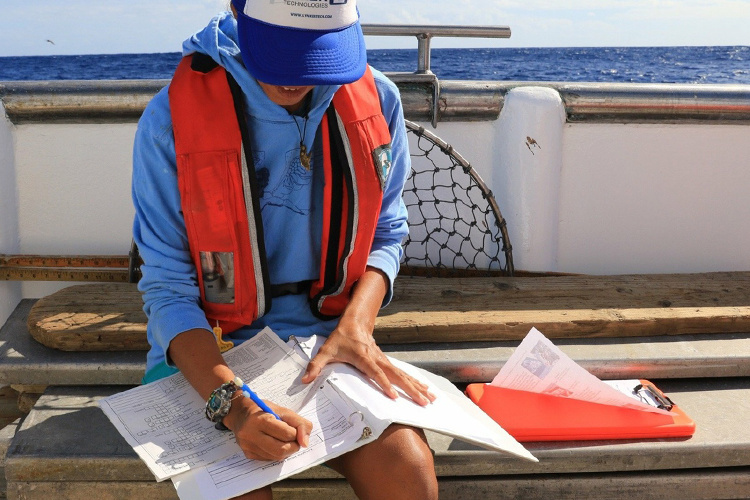Federal fisheries law enforcement officials say they are intent on ensuring the safety of observers and at-sea monitors in the Northeast, as the National Marine Fisheries Service increases coverage of the groundfish fleet.
In May 2022, a new rule will go into effect that requires a major increase in observer coverage for the groundfish sector vessels in the Northeast. In addition, NMFS will implement new observer requirements for herring and some scallop vessels.
“We take observer and monitor safety seriously and we want vessel owners, captains, and crew to take it seriously, too,” said Jeffrey Ray, the Assistant Director of the Northeast Division for the National Oceanic and Atmospheric Administration’s Office of Law Enforcement, in a statement issued in March. “It is illegal to interfere with or harass federal fisheries observers in any way while they are near or aboard your vessel. No exceptions.”
OLE agents will conduct more operations “focused on observer safety and preventing harassment and interference,” according to the agency.
“No one, including the owner, captain, or crew, are allowed to intimidate, interfere with, or harass an observer,” said Ray. “There are standards of behavior that must be followed when an observer is present on the dock or onboard a vessel.”
Both civil and criminal penalties for harassing or interfering with observers can include fines exceeding $200,000 and up to 10 years imprisonment.
“We are going to aggressively respond to any observer incidents in the Northeast,” said Ray.
“There are many vessel owners, captains, and crew who follow the law. Others do not. The violators are who we are after,” he added.
“Our observers and at-sea monitors are critical to the management of sustainable fisheries,” said Jon Hare, director of the Northeast Fisheries Science Center. “Their work collecting data—often under difficult conditions—provides the core information needed to estimate total catch, track quotas, and reduce bycatch, which is essential to maximizing fishing opportunities for the long term.”
Observers and monitors are trained and certified by NMFS but are employed and deployed by private contractors. Since 2004, NMFS observer training has included tactics for defusing harassment situations and handling hostile environments.
“It is a challenging environment,” said Katherine McArdle, who leads the Fisheries Monitoring Operations Branch. “Our intent is to give observers the confidence they need both to deal with a situation with a vessel and to report it.”
As part of this increased enforcement, NOAA officials say they will be gathering information from all observers to confirm that they were not subject to any type of harassment, intimidation, or interference during their fishing trip. Any reports to the contrary will be investigated by NOAA’s Office of Law Enforcement.
NOAA officials say they want to reach out to vessel owners, captains, and crew, who may not have carried observers or monitors before, and make sure they understand the law.
“We need observers, and we need them to be able to perform their job safely, without interference or harassment,” said Hare.







